Sourdough remains one of the undisputed champions of the British baking industry.
Often the star attraction of an artisan baker’s range, it has also become a key driver of growth for supermarkets both in the packaged bread aisles and in-store bakeries (ISB).
“Speciality loaves, which include sourdough, are leading the way for value and unit growth compared to others such as traditional loaves, rolls, and French breads,” comments Hannah Sibley, product and innovation director at bakery supplier Aryzta UK & Ireland.
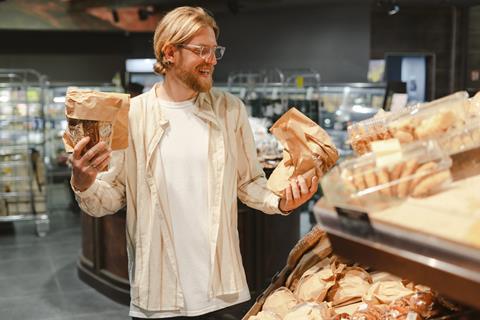
UK spending on sourdough hit £58.5m, according to Kantar data for the 52 weeks to 17 March 2024 . This marked double-digit (10.7%) growth year on year which, like other categories, is partially attributed to price rises as a result of inflation.
However, with 26m packs sold over the period, sourdough volumes were up by 4.3% compared to the previous year. With total bread volumes seeing a slight decline of 0.7%, the sourdough market appears to offer good opportunities for bread makers.
So, what is it about sourdough that is appealing to shoppers? And how are bakers of all shapes and sizes tapping into this? Let’s cut to the crust.
Something special
Many consumers see sourdough as a treat rather than an everyday staple and are willing to spend more on ‘better than usual’ bread , notes Samantha Warner, senior R&D manager bakery at ingredients supplier Puratos UK. It’s worth noting that unit sales for sourdough remain well below that of white bread, which shifted more than 1.1bn packs in the past year [Kantar].
Jason’s Sourdough is among the brands to capitalise on demand for wrapped sourdough loaves with its range of ciabattin – a mash-up of ciabatta and the sourdough process. Notably, it isn’t trying to compete with sliced white, but rather carve out a position for itself in the premium packaged bread market. It’s paying off – despite hitting the scene in 2020, Jason’s Sourdough is now Britain’s fifth biggest bread brand, with products available in nearly 3,000 stores. It even has a new manufacturing facility in the works to help it keep up with demand.
“Jason’s Sourdough is proving that artisanal quality bread can be scaled and made more accessible to more people,” said Jason Geary, fourth generation master baker of Geary’s Bakeries when the £8m investment was announced. “Everything we do is focused on delivering real sourdough, made with natural ingredients, no yeast, no seed oil, and no additives to homes across the country. It’s an exciting period of growth as we continue this expansion.”
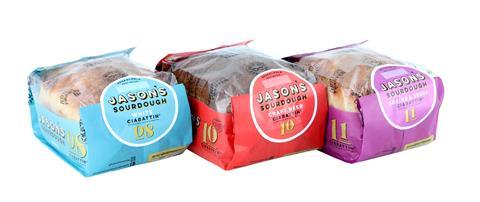
The growing popularity of sourdough is also evident in the out-of-home market. Results from a UK consumer survey published in bakery manufacturer Délifrance’s ‘Prove It 2024’ report found that 29% of respondents said they were actively seeking sourdough carriers when dining out.
“As a result, operators continue to expand their offerings, incorporating a wider variety of sourdough-based products,” remarks Délifrance’s marketing director Stéphanie Brillouet. “From sandwiches to specialty breads, the demand for premium, authentic sourdough options has led to an increase in the availability of handcrafted loaves, made with diverse grains and flours.”
Quality was the key factor swaying purchasing decisions of consumers, as indicated by just over half (52%) of the respondents in Délifrance’s survey. “Quality is paramount,” confirms Brillouet, noting the increasing amount of people seeking “handcrafted, long-fermentation breads that offer superior taste and texture”.
Cost is still a consideration though. Nicky Taylor, managing director at craft bakery chain Cavan Bakery, claims there is a clear divide in customer priorities when it comes to purchasing bread at its 14 stores across Surrey and Southwest London. “There are to two definite camps when it comes to bread: those who prioritise price over authenticity, and those who are prepared to pay a premium for a genuine sourdough or other freshly baked craft breads.
“That’s not to say that we can increase prices with impunity, however; we have to be very attuned to our customers’ expectations. There is certainly room in the market for both,” she adds.
Diversification of ingredients
There’s also a growing awareness among consumers that there is not just one ‘sour’ flavour profile. “In fact, there are several factors that affect the resulting taste, including flour type, fermentation time and wild yeasts and bacteria present in the starter,” comments Samantha Warner, senior R&D manager of bakery at ingredients supplier Puratos UK.
As such, different flours such as quinoa and buckwheat are gaining interest, particularly among regular buyers of sourdough bread. “These can provide more diverse flavour profiles such as fruity and creamy, allowing for pairing of sourdoughs with foods to enhance taste,” reveals Warner.
Diverse ingredients also provide a diverse range of health benefits – adding to the health halo around sourdough. Like many fermented foods (think yoghurt, kimchi, and kefir to name a few) sourdough also offers digestive benefits, providing a fuel source for good gut microbes.
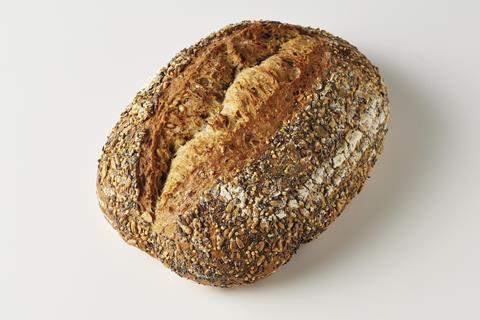
Délifrance’s Brillouet points to the rise in demand for more premium, healthier options, which she says indicates that “consumers value both the nutritional profile and the traditional methods used in producing sourdough, viewing it as a more wholesome and flavourful choice”.
Sourdough made with just flour, salt, and water is also benefitting from the ongoing debate around ultra-processed foods.
“We’re navigating a landscape that’s paying more attention to processed products and how we limit these in our diets,” comments Aryzta’s Sibley.
It’s what’s on the inside that matters
With more attention being paid to labels, shoppers are also seeking information about the provenance and story of the ingredients which are listed.
“It’s why we’re seeing more product labels highlighting where the flour has been milled or the use of regeneratively farmed flour on our shelves today,” remarks Puratos UK’s Warner.
A timely illustration of this is Gail’s Bakery, which has recently launched three sourdough loaves plus a focaccia made with sourdough at its stores. These feature wheat flours and whole grains including emmer, spelt, rye, and barley sourced from regenerative farms.
“At Gail’s we think the food system should and can change, and we have an idea about what role we can play in that,” says co-founder and CEO Tom Molnar, confirming the chain’s support to farming methods which promote biodiversity and soil heath.
Regenerative food and farming brand Wildfarmed has strengthened its presence in the UK since winning Sustainability Initiative of the Year at the Baking Industry Awards last year. It debuted a five-strong bread range at Waitrose back in April that includes sourdough and seeded sourdough loaves.
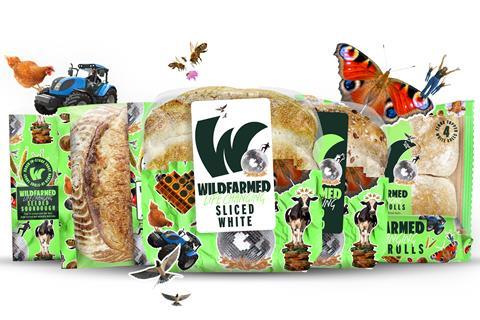
Wildfarmed flour also crops up in the recipe for the Garlic & Rosemary Deep Pan Focaccia by 4 Eyes Bakery – a happy sourdough accident turned winner of Britain’s Best Loaf 2024 – as well as in sourdough products from brands including M&S, The Bread Factory, and Jason’s Sourdough.
Other regeneratively-sourced bread flour brands are emerging, such as Nature’s Gold by ADM, giving bakers more options to achieve sustainability goals with their sourdough.
Beyond loaves
Bakers working with sourdough should be thinking outside the bread tin too.
“Thanks to the magic of fermentation, sourdough can play an important role in improving or enhancing flavour in other baked goods,” expresses Warner. Research conducted on behalf of Puratos had 71% of UK consumers surveyed saying they bought sourdough products or products made with sourdough that weren’t bread.
“We’re seeing bakers experiment with a wide variety of applications, including crackers, muffins, and pastries, and we expect interest to grow in the coming years. For example, we’ve been using sourdough as an exciting addition in fruit cakes recently; the acidity brings out the fruitiness,” Warner adds.
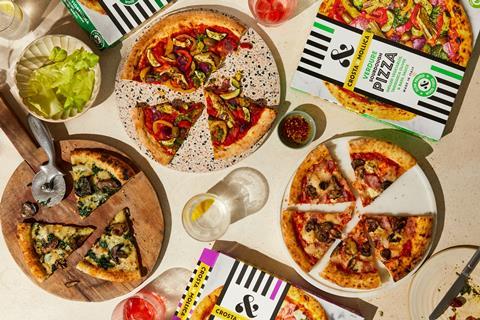
Sourdough pizza is a now well-established trend, reports Cavan’s Taylor, who says it has also crossed over to buns and doughnuts. “However, often these are made with the addition of sourdough as an ingredient, rather than resembling sourdough in the accepted sense,” she notes.
Nevertheless, there is much optimism about the future of the UK’s sourdough scene.
“The opportunities with sourdough are endless,” Warner declares, “and we’re only at the start of this journey.”
ADVERTISEMENT: ARYZTA, SERVING INSPIRATION
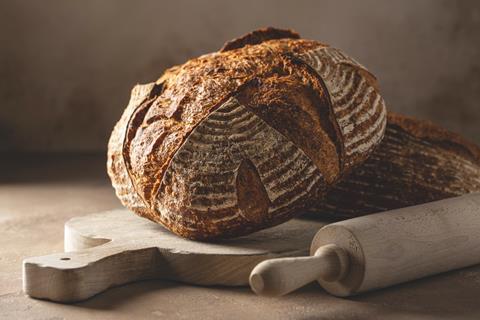
Sourdough remains a staple on both foodservice menus and consumers’ shopping lists largely driven by consumer interest in clean ingredients and the social media trend for elevated toasts.
“The narrative around ultra processed has led to greater understanding on ingredient lists leading to calls for products to include fewer ingredients,” explains Hannah Sibley, product and innovation director of Aryzta UK & Ireland. ”This has driven demand for breads like sourdough, which already has a ‘healthier for you’ image with 58% of UK consumers saying it is healthier than regular white bread [Aryzta Asks survey with 1,009 UK consumers, August 2023].”
Freshness is another important factor; shoppers also want to purchase breads with a longer life and less wastage. Sourdough with its natural preservatives provides a great solution.
“Our 33 year old starter is the key ingredient to the texture, taste and flavour of Aryzta sourdough breads,” adds Sibley. “Our starter is used and regenerated daily to create the unique and distinctive experience of our premium sourdough. The combination of long fermentation and resting times, means we produce authentic sourdough at scale. Aryzta customers benefit from traditional baking methods and the precise standardisation of modern manufacturing.”
Visit Aryzta’s website for more information on its range of authentic sourdough products.



















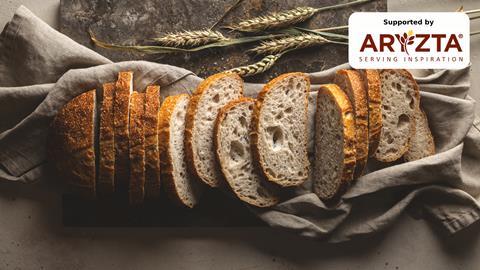
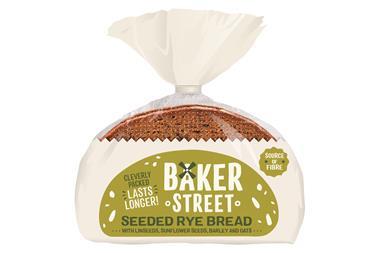
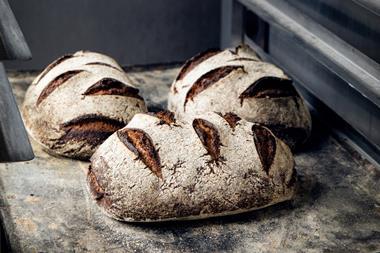
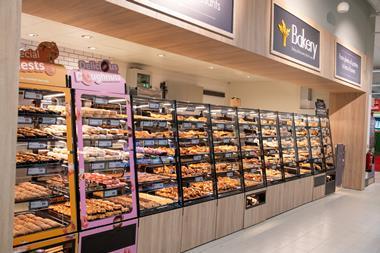
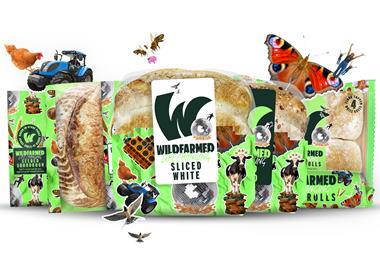
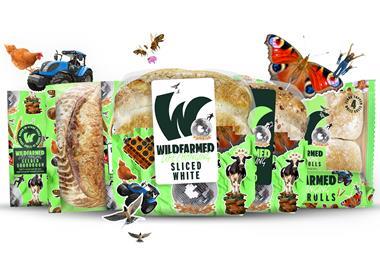






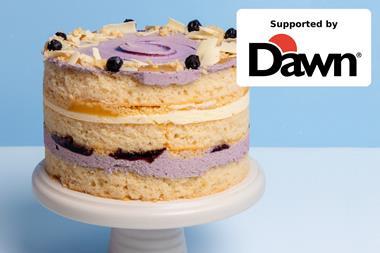

1 Readers' comment